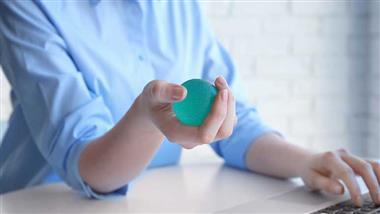
- Fidgeting and everyday movements contribute to non-exercise activity thermogenesis (NEAT), which is the energy your body uses for activities other than formal exercise, sleeping and eating; it helps maintain a healthy weight
- These small movements aren’t just nervous habits but your body’s natural response to being sedentary for too long
- Fidgeting improves focus and cognitive performance, making it especially beneficial for people with ADHD or attention challenges
- Research shows fidgeting while sitting burns up to 30% more calories than staying completely still, contributing to better metabolic health
- Simple workplace adjustments like standing desks, walking during calls or using fidget toys significantly increase your daily NEAT
Picture this: you’re stuck at your desk, your leg bouncing under the table, or you’re clicking your pen during a long phone call. You might think it’s just a nervous habit, but what if those wiggles are secretly boosting your health? Fidgeting — those little movements you can’t seem to stop — along with everyday actions like standing or pacing, do wonders for you.
These actions fall under a concept called non-exercise activity thermogenesis, or NEAT. In simple terms, NEAT is all the energy your body burns from anything other than sleeping, eating or intentional exercise. These small moves burn calories, lift your mood and even sharpen your focus.
(Tom: I think the author of this article, and the authors of the cited studies, are missing a major reason that people fidget when reading or listening, they are unconsciously struggling to resist the effects of having read or heard a word for which they do not have the appropriate definition.)
